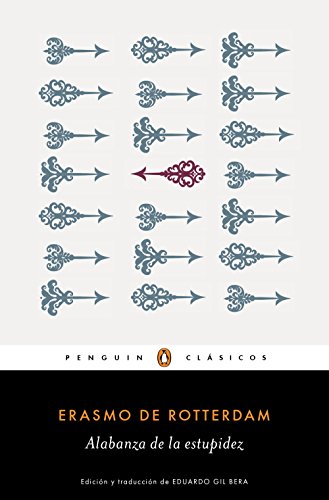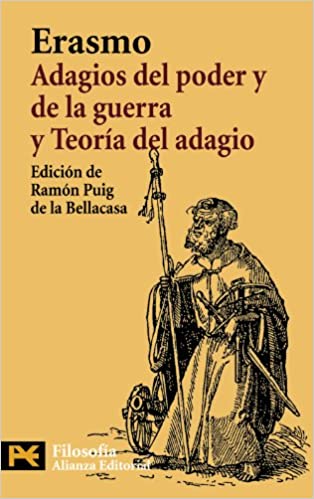In the end, to be a humanist is to point to that mediocrity, that lukewarmness that sets the meridian of thought from which to trace any kind of conciliatory synthesis. And neither before nor now are intermediate points well seen by a mob yearning for radicalism, for opposing positions where they can savor the conflict and the insane competition for some kind of wisdom or license over the neighbor. From who takes better care of his garden to which country is better…
Erasmus of Rotterdam prioritized that of locating in the equidistance as far as the pillar of critical thinking is concerned. Because we insist that being a humanist is to position yourself in the middle to observe and analyze the best that can come out of one pole or the other. Only in this way could good old Erasmus try to move the ethical and social foundations against his own Church as well as other social classes. But he not only raised his speech and work before immovable institutions but also before reactionaries of all cuts and conditions.
I could be argued against pointing to his status as a religious Christian. But then we would start with the radical idea that a humanist must become a hermit away from everything. And the point is that a humanist is also a humanist because of his longing for knowledge, that curiosity that moves us to approach new places. As a cleric, Erasmus of Rotterdam traveled and learned new thoughts, never ceasing to criticize what he considered inappropriate for a clerical establishment capable of the most wicked contradictions.
Top 3 Recommended Books by Erasmus of Rotterdam
Praise madness
Only the best understood humanism, the one cultivated by this great thinker, allows us to decipher the whims and shortcuts of reason in the face of any human future. A permanent classic.
La praise of stupidity It is the most famous of the works of the philosopher Erasmus of Rotterdam. First printed in 1511, it is one of the most influential essays on Western culture, as well as one of the catalysts for the XNUMXth-century Protestant Reformation led by Martin Luther. Through a burlesque and ironic tone and a shrewd and hurtful crudeness, Erasmus gives voice to stupidity itself so that it is she who makes an apology for its usefulness, criticizing in turn the uses of reason.
The poet and essayist Eduardo Gil Bera offers in these pages a brand new and throbbing translation of this eminent work of Western thought. Through it and the brilliant introduction that precedes it, then, he proposes a rereading of a classic that, century after century, proves inexhaustible.
Adages of power and war
In order to use them in his rhetoric classes, ERASMUS of Rotterdam (1467/69-1536) collected Graeco-Latin proverbs and, to earn some money, in 1500 he published a collection of 838 briefly explained, the Adagiorum collectanea. In 1508 the collection was renamed Adagiorum chiliades ("Thousands of adages"), and after nine reissues, it included 4.151 adages with historical-philological commentaries at his death.
This volume prepared by Ramón Puig de la Bellacasa presents the Prolegomena -the ADAGIO THEORY, the author's introduction to the work- and, under the title ADAGIOS DEL PODER Y DE LA GUERRA, seven of them to which he gave greater political significance and social, for the depth and insight with which he describes and lambastes the power of kings and prelates, as well as the violence and wars of the XNUMXth century. Erasmus still challenges us, not because he is "current", but because our problems are "old", because the perversions of political and religious power, war, those who cause them, are unfortunately still present.
Erasmus of Rotterdam, Triumph and Tragedy of a Humanist
A last book by Erasmus of Rotterdam that is not his authorship. It is a work of Stefan Zweig where life, work and consequences of his determination on thought as the foundation of ethics for our civilization...
Stefan Zweig referred to the great humanist Erasmus of Rotterdam as the first "conscious European." For him, Erasmus was the "revered teacher", to whom he felt united not only spiritually but above all in rejecting all kinds of violence. This "figure of someone who is right not in the tangible realm of success but only in a moral sense" fascinated Zweig. Strength of spirit and difficulty in deciding to act constitute Erasmus's "triumph and tragedy." Stefan Zweig tries, with his biography, for Erasmus to reply with what was the meaning of his life: justice. He knows that "the free and independent spirit, who does not allow himself to be bound by any dogma and who avoids taking sides, has no country on earth."



